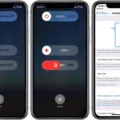When it comes to storage, many people wonder if emails take up space on their devices. The short answer is yes, they do. In fact, emails can take up quite a bit of space on your Android operating system.
The average size of an email file is about 75 KB. While that may not seem like a lot, if you keep thousands — or even hundreds — of emails around, then it’s time that you clear a significant amount of space by deleting these emails in Gmail.
Deleting emails is not only beneficial for freeing up space on your device, but it can also be important for legal and financial reasons. If you delete an email, you won’t be able to access it again, which means you won’t be able to produce evidence for discovery and litigation.
It’s important to note that the items that are waiting to be deleted take up space on your phone, so if you delete them sooner, you’ll free up space faster. This is why it’s essential to delete emails sooner rather than later.
One way to keep your inbox from becoming cluttered is to regularly delete emails that you no longer need. For example, if you’ve already responded to an email or it’s no longer relevant, then there’s no reason to keep it around.
Another option is to archive emails that you want to keep but doesn’t need to see in your inbox. Archiving moves the email out of your inbox and into a separate folder, which can help keep your inbox organized and clutter-free.
While emails may seem small, they can definitely take up space on your device. To free up space and keep your inbox organized, it’s essential to regularly delete emails that are no longer necessary. By doing so, you’ll not only free up space on your device but also avoid potential legal and financial issues down the road.

Does Deleting Old Emails Free Up Space?
Deleting old emails does free up space in your inbox. When you delete an email, it is moved to the trash or recycling bin, and then deleted permanently after a certain period of time. This frees up space in your email account, which can be helpful if you have a limited amount of storage space. However, it’s important to keep in mind that simply deleting emails may not be enough to free up significant amounts of space in your account. You may also need to regularly empty your trash or recycling bin, and consider archiving or backing up important emails to free up even more space. Additionally, it’s important to be cautious when deleting emails, as you may accidentally delete important or sensitive information that you may need in the future.
How Much Storage Do Emails Take Up?
Emails can take up varying amounts of storage depending on their size and the number of attachments they contain. On average, an email file size is around 75 KB. However, this can vary greatly depending on the content of the email. For example, an email with a large number of high-resolution images or videos can easily exceed several megabytes in size. Additionally, emails with attachments such as PDFs, spreadsheets, or other documents can also increase the overall size of the email. It’s important to keep in mind that the amount of storage an email takes up can also depend on the email service provider and the storage limits they have in place for their users.
Do Emails Consume Storage?
Emails can consume storage space on your Android operating system. Each email that you receive or send contains data, including the content of the email, any attachments, and metadata. Over time, if you accumulate a large number of emails, they can take up a significant amount of storage space on your device.
The amount of storage space that an email consumes varies depending on the size of the email and any attachments that it contains. For example, a simple text-only email will take up much less space than an email with several high-resolution images or a large video attachment.
To manage your storage space and keep your device running smoothly, it’s a good idea to regularly delete any emails that you no longer need or that have already been addressed. You can do this easily in Gmail by selecting the emails you want to delete and clicking on the trash can icon. By freeing up space in your email storage, you can also improve the performance of your device and ensure that it runs smoothly.
Does Deleting Emails Help With iPhone Storage?
Deleting emails can free up storage space on your iPhone. Every email that you receive or send takes up a certain amount of storage space on your device. Over time, these emails can accumulate and take up a significant amount of space on your iPhone. By deleting unwanted or unnecessary emails, you can free up storage space and improve the performance of your device.
It’s important to note that deleting emails from your iPhone doesn’t necessarily mean that they are permanently deleted. By default, emails that you delete are moved to the “Trash” folder, where they continue to take up space on your device. To completely remove emails and free up space, you’ll need to empty the “Trash” folder as well.
To delete emails and free up space on your iPhone, you can simply swipe left on an email in your inbox and tap the “Delete” button. Alternatively, you can select multiple emails at once and delete them in bulk. It’s also a good idea to regularly review and delete emails from the “Sent” and “Drafts” folders as well.
Deleting emails is a simple and effective way to free up storage space on your iPhone and improve its performance.
Conclusion
Storage is a critical aspect of technology that we cannot afford to overlook. With the increasing amount of data being generated daily, it’s essential to have adequate storage to store and manage this data effectively. Whether you’re using a personal computer, a smartphone, or any other device, it’s crucial to manage your storage space efficiently. Deleting unwanted files, clearing caches, and removing unnecessary apps can help free up space and improve the performance of your device. It’s also important to consider the type of storage device you use, as well as its capacity and speed, to ensure you have the best storage solution for your needs. With proper storage management, you can enjoy faster device performance, more efficient data management, and a better overall user experience.








